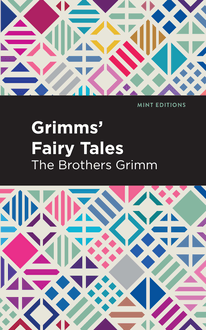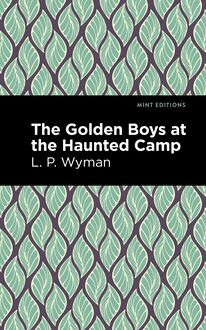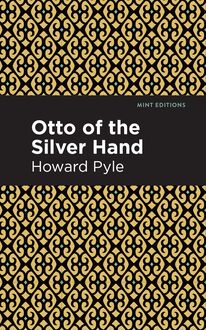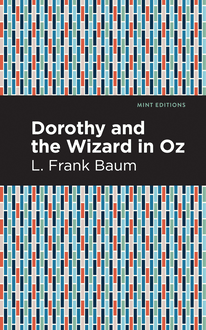-
 Univers
Univers
-
 Ebooks
Ebooks
-
 Livres audio
Livres audio
-
 Presse
Presse
-
 Podcasts
Podcasts
-
 BD
BD
-
 Documents
Documents
-
- Cours
- Révisions
- Ressources pédagogiques
- Sciences de l’éducation
- Manuels scolaires
- Langues
- Travaux de classe
- Annales de BEP
- Etudes supérieures
- Maternelle et primaire
- Fiches de lecture
- Orientation scolaire
- Méthodologie
- Corrigés de devoir
- Annales d’examens et concours
- Annales du bac
- Annales du brevet
- Rapports de stage
La lecture à portée de main
Vous pourrez modifier la taille du texte de cet ouvrage
Découvre YouScribe en t'inscrivant gratuitement
Je m'inscrisDécouvre YouScribe en t'inscrivant gratuitement
Je m'inscrisEn savoir plus
Vous pourrez modifier la taille du texte de cet ouvrage
En savoir plus

Description
Jo’s Boys (1886) is a novel by American author Louis May Alcott. Written while Alcott was living in the historic Thoreau-Alcott House in Concord, Massachusetts, Jo’s Boys picks up ten years after the events of Little Men, which followed the young sons of Jo Bhaer (née March) and Professor Friedrich Bhaer at their newly established Plumfield Estate School. As with the rest of the series, Jo’s Boys was inspired by the educational reforms theorized and practiced by her father.
Plumfield boys Tommy, Emil, Nat, Dan, Demi, Rob, and Ted have all grown up, taking with them into the world the lessons they learned at the Plumfield Estate School. Split into sections following the lives of each young man, Jo’s Boys traces the impact on Jo and Friedrich Bhaer’s experimental form of education across a number of diverse—and often difficult—situations. Each character navigates the realities of college, marriage, and work with varying degrees of success, often finding that what they can most rely on is a well-grounded sense of morality, as well as a strong and abundant understanding of themselves as individuals. Emil, Professor Friedrich Bhaer’s nephew, becomes a sailor, gets promoted to second mate, and is faced with the challenge of rescuing his fellow shipmates after a wreck leaves them stranded. Tommy enters medical school but finds it difficult to dedicate himself to his work while weighing his complex affections for Nan and Dora, both of whom he could see himself marrying. The novel’s most compelling character is Dan, who becomes a sheep-herder in Australia before returning to America, being arrested out West, and ultimately discovering his deeply entrenched need to dedicate his life to others. Although originally written for children, Louisa May Alcott’s Jo’s Boys, alongside the other novels in her “March Family Saga,” has long been read and adored by children and adults alike.
With a beautifully designed cover and professionally typeset manuscript, this edition of Louisa May Alcott’s Jo’s Boys is a classic of American literature and children’s fiction reimagined for modern readers.
Sujets
Informations
| Publié par | Mint Editions |
| Date de parution | 01 décembre 2020 |
| Nombre de lectures | 1 |
| EAN13 | 9781513272825 |
| Langue | English |
| Poids de l'ouvrage | 2 Mo |
Informations légales : prix de location à la page 0,0500€. Cette information est donnée uniquement à titre indicatif conformément à la législation en vigueur.
Extrait
Jo’s Boys
Louisa May Alcott
Jo’s Boys was first published in 1886.
This edition published by Mint Editions 2021.
ISBN 9781513267821 | E-ISBN 9781513272825
Published by Mint Editions®
minteditionbooks.com
Publishing Director: Jennifer Newens
Design & Production: Rachel Lopez Metzger
Typesetting: Westchester Publishing Services
C ONTENTS 1. T EN Y EARS L ATER 2. P ARNASSUS 3. J O ’ S L AST S CRAPE 4. D AN 5. V ACATION 6. L AST W ORDS 7. T HE L ION AND THE L AMB 8. J OSIE P LAYS M ERMAID 9. T HE W ORM T URNS 10. D EMI S ETTLES 11. E MIL ’ S T HANKSGIVING 12. D AN ’ S C HRISTMAS 13. N AT ’ S N EW Y EAR 14. P LAYS AT P LUMFIELD 15. W AITING 16. I N THE T ENNIS -C OURT 17. A MONG THE M AIDS 18. C LASS D AY 19. W HITE R OSES 20. L IFE FOR L IFE 21. A SLAUGA ’ S K NIGHT 22. P OSITIVELY L AST A PPEARANCE
Chapter 1
T EN Y EARS L ATER
“If anyone had told me what wonderful changes were to take place here in ten years, I wouldn’t have believed it,” said Mrs. Jo to Mrs. Meg, as they sat on the piazza at Plumfield one summer day, looking about them with faces full of pride and pleasure.
“This is the sort of magic that money and kind hearts can work. I am sure Mr. Laurence could have no nobler monument than the college he so generously endowed; and a home like this will keep Aunt March’s memory green as long as it lasts,” answered Mrs. Meg, always glad to praise the absent.
“We used to believe in fairies, you remember, and plan what we’d ask for if we could have three wishes. Doesn’t it seem as if mine had been really granted at last? Money, fame, and plenty of the work I love,” said Mrs. Jo, carelessly rumpling up her hair as she clasped her hands over her head just as she used to do when a girl.
“I have had mine, and Amy is enjoying hers to her heart’s content. If dear Marmee, John, and Beth were here, it would be quite perfect,” added Meg, with a tender quiver in her voice; for Marmee’s place was empty now.
Jo put her hand on her sister’s, and both sat silent for a little while, surveying the pleasant scene before them with mingled sad and happy thoughts.
It certainly did look as if magic had been at work, for quiet Plumfield was transformed into a busy little world. The house seemed more hospitable than ever, refreshed now with new paint, added wings, well-kept lawn and garden, and a prosperous air it had not worn when riotous boys swarmed everywhere and it was rather difficult for the Bhaers to make both ends meet. On the hill, where kites used to be flown, stood the fine college which Mr. Laurence’s munificent legacy had built. Busy students were going to and fro along the paths once trodden by childish feet, and many young men and women were enjoying all the advantages that wealth, wisdom, and benevolence could give them.
Just inside the gates of Plumfield a pretty brown cottage, very like the Dovecote, nestled among the trees, and on the green slope westward Laurie’s white-pillared mansion glittered in the sunshine; for when the rapid growth of the city shut in the old house, spoilt Meg’s nest, and dared to put a soap-factory under Mr. Laurence’s indignant nose, our friends emigrated to Plumfield, and the great changes began.
These were the pleasant ones; and the loss of the dear old people was sweetened by the blessings they left behind; so all prospered now in the little community, and Mr. Bhaer as president, and Mr. March as chaplain of the college, saw their long-cherished dream beautifully realized. The sisters divided the care of the young people among them, each taking the part that suited her best. Meg was the motherly friend of the young women, Jo the confidante and defender of all the youths, and Amy the lady Bountiful who delicately smoothed the way for needy students, and entertained them all so cordially that it was no wonder they named her lovely home Mount Parnassus, so full was it of music, beauty, and the culture hungry young hearts and fancies long for.
The original twelve boys had of course scattered far and wide during these years, but all that lived still remembered old Plumfield, and came wandering back from the four quarters of the earth to tell their various experiences, laugh over the pleasures of the past, and face the duties of the present with fresh courage; for such home-comings keep hearts tender and hands helpful with the memories of young and happy days. A few words will tell the history of each, and then we can go on with the new chapter of their lives.
Franz was with a merchant kinsman in Hamburg, a man of twenty-six now, and doing well. Emil was the jolliest tar that ever “sailed the ocean blue.” His uncle sent him on a long voyage to disgust him with this adventurous life; but he came home so delighted with it that it was plain this was his profession, and the German kinsman gave him a good chance in his ships; so the lad was happy. Dan was a wanderer still; for after the geological researches in South America he tried sheep-farming in Australia, and was now in California looking up mines. Nat was busy with music at the Conservatory, preparing for a year or two in Germany to finish him off. Tom was studying medicine and trying to like it. Jack was in business with his father, bent on getting rich. Dolly was in college with Stuffy and Ned reading law. Poor little Dick was dead, so was Billy; and no one could mourn for them, since life would never be happy, afflicted as they were in mind and body.
Rob and Teddy were called the “Lion and the Lamb”; for the latter was as rampant as the king of beasts, and the former as gentle as any sheep that ever baaed. Mrs. Jo called him “my daughter,” and found him the most dutiful of children, with plenty of manliness underlying the quiet manners and tender nature. But in Ted she seemed to see all the faults, whims, aspirations, and fun of her own youth in a new shape. With his tawny locks always in wild confusion, his long legs and arms, loud voice, and continual activity, Ted was a prominent figure at Plumfield. He had his moods of gloom, and fell into the Slough of Despond about once a week, to be hoisted out by patient Rob or his mother, who understood when to let him alone and when to shake him up. He was her pride and joy as well as torment, being a very bright lad for his age, and so full of all sorts of budding talent, that her maternal mind was much exercised as to what this remarkable boy would become.
Demi had gone through College with honour, and Mrs. Meg had set her heart on his being a minister—picturing in her fond fancy the first sermon her dignified young parson would preach, as well as the long, useful, and honoured life he was to lead. But John, as she called him now, firmly declined the divinity school, saying he had had enough of books, and needed to know more of men and the world, and caused the dear woman much disappointment by deciding to try a journalist’s career. It was a blow; but she knew that young minds cannot be driven, and that experience is the best teacher; so she let him follow his own inclinations, still hoping to see him in the pulpit. Aunt Jo raged when she found that there was to be a reporter in the family, and called him “Jenkins” on the spot. She liked his literary tendencies, but had reason to detest official Paul Prys, as we shall see later. Demi knew his own mind, however, and tranquilly carried out his plans, unmoved by the tongues of the anxious mammas or the jokes of his mates. Uncle Teddy encouraged him, and painted a splendid career, mentioning Dickens and other celebrities who began as reporters and ended as famous novelists or newspaper men.
The girls were all flourishing. Daisy, as sweet and domestic as ever, was her mother’s comfort and companion. Josie at fourteen was a most original young person, full of pranks and peculiarities, the latest of which was a passion for the stage, which caused her quiet mother and sister much anxiety as well as amusement. Bess had grown into a tall, beautiful girl looking several years older than she was, with the same graceful ways and dainty tastes which the little Princess had, and a rich inheritance of both the father’s and mother’s gifts, fostered by every aid love and money could give. But the pride of the community was naughty Nan; for, like so many restless, wilful children, she was growing into a woman full of the energy and promise that suddenly blossoms when the ambitious seeker finds the work she is fitted to do well. Nan began to study medicine at sixteen, and at twenty was getting on bravely; for now, thanks to other intelligent women, colleges and hospitals were open to her. She had never wavered in her purpose from the childish days when she shocked Daisy in the old willow by saying: “I don’t want any family to fuss over. I shall have an office, with bottles and pestle things in it, and drive round and cure folks.” The future foretold by the little girl the young woman was rapidly bringing to pass, and finding so much happiness in it that nothing could win her from the chosen work. Several worthy young gentlemen had tried to make her change her mind and choose, as Daisy did, “a nice little house and family to take care of.” But Nan only laughed, and routed the lovers by proposing to look at the tongue which spoke of adoration, or professionally felt the pulse in the manly hand offered for her acceptance. So all departed but one persistent youth, who was such a devoted Traddles it was impossible to quench him.
This was Tom, who was as faithful to his child sweetheart as she to her “pestle things,” and gave a proof of fidelity that touched her very much. He studied medicine for her sake alone, having no taste for it, and a decided fancy for a mercantile life. But Nan was firm, and Tom stoutly kept on, devoutly hoping he might not kill many of his fellow-beings when he came to practise. They were excellent friends, however, and caused mu
-
 Univers
Univers
-
 Ebooks
Ebooks
-
 Livres audio
Livres audio
-
 Presse
Presse
-
 Podcasts
Podcasts
-
 BD
BD
-
 Documents
Documents
-
Jeunesse
-
Littérature
-
Ressources professionnelles
-
Santé et bien-être
-
Savoirs
-
Education
-
Loisirs et hobbies
-
Art, musique et cinéma
-
Actualité et débat de société
-
Jeunesse
-
Littérature
-
Ressources professionnelles
-
Santé et bien-être
-
Savoirs
-
Education
-
Loisirs et hobbies
-
Art, musique et cinéma
-
Actualité et débat de société
-
Actualités
-
Lifestyle
-
Presse jeunesse
-
Presse professionnelle
-
Pratique
-
Presse sportive
-
Presse internationale
-
Culture & Médias
-
Action et Aventures
-
Science-fiction et Fantasy
-
Société
-
Jeunesse
-
Littérature
-
Ressources professionnelles
-
Santé et bien-être
-
Savoirs
-
Education
-
Loisirs et hobbies
-
Art, musique et cinéma
-
Actualité et débat de société
- Cours
- Révisions
- Ressources pédagogiques
- Sciences de l’éducation
- Manuels scolaires
- Langues
- Travaux de classe
- Annales de BEP
- Etudes supérieures
- Maternelle et primaire
- Fiches de lecture
- Orientation scolaire
- Méthodologie
- Corrigés de devoir
- Annales d’examens et concours
- Annales du bac
- Annales du brevet
- Rapports de stage




















